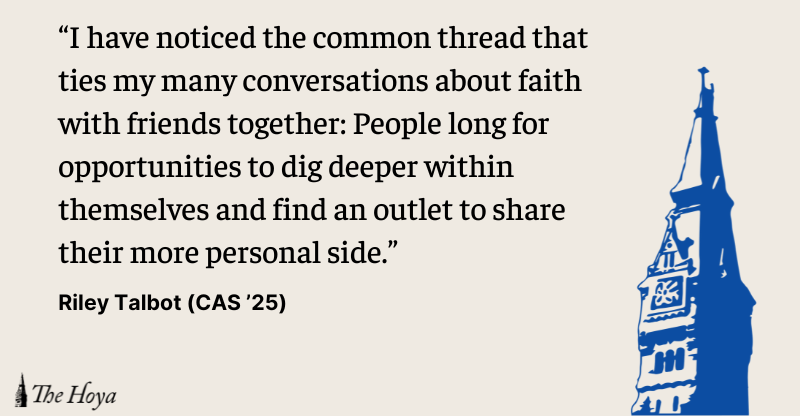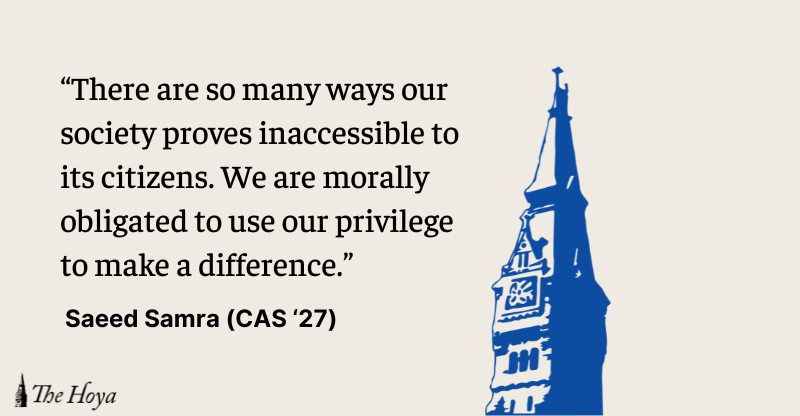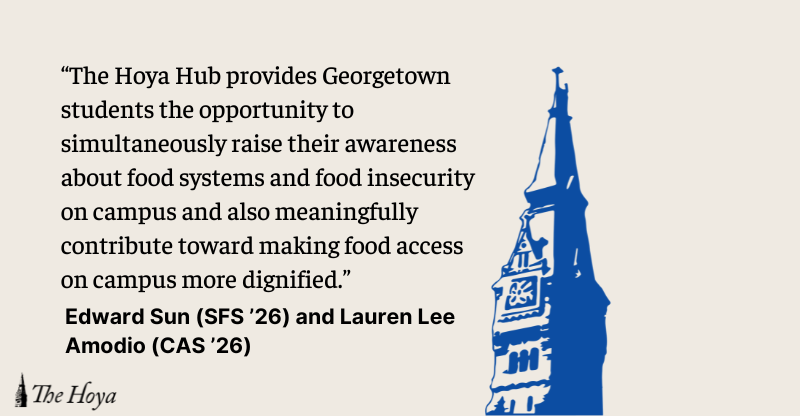In the United States, universities are the premier institutions for open inquiry in the pursuit of learning. Because of the particular role freedoms of speech and expression play in this enterprise, all parties to the university’s mission face distinct challenges and responsibilities related to campus speech. In classes, meetings, laboratories and dorms, members and guests of a university community harness speech and expression in a collective attempt to learn.
When we gather in these settings, we do not speak just to speak — rather, we speak to further inquiry. Therefore, the foundational question university faculty and administrators face is not how much freedom of expression should be tolerated on campus. Rather, it is what responsibilities faculty, administrators, students and guest speakers have to ensure that campus speech serves the distinctive mission of universities.
Recently, Attorney General Jeff Sessions came to Georgetown University Law Center to speak on the topic of free speech on college campuses. His appearance drove home the need for all members of the Georgetown University community to consider the place of free speech in the university and the various obligations it imposes on all of us, whether as speakers or listeners on campus.
For speech and expression to serve the purposes of free inquiry at a university, we must purposefully assemble people who do not necessarily agree with each other — let alone like each other — and insist they collaborate in conversation with one another. Collaboration like this surely requires courtesy, but it also requires a willingness, maybe even an appetite, for discomfort and hard work. Faculty members cannot reasonably ask to have students or colleagues who will never challenge their beliefs; students cannot reasonably ask to be wholly safeguarded from their own reactions or from speakers who provoke them; administrators cannot reasonably ask faculty and students to simply toe their line; and guest speakers cannot reasonably ask to be insulated from tough questions or from objection to the very decision to invite them to campus to speak.
Productive conversations at the university are almost always demanding, often discomfiting and intermittently fascinating. To make them work, we must deploy a sometimes uneasy combination of honesty, tenacity, clarity, open-mindedness, commitment to substance, attentiveness and courage. Cultivating these traits — especially all together — takes practice and effort.
Moreover, speaking or listening as an inquirer seeking knowledge involves personal risk. We may fail to express ourselves clearly; we may be misunderstood; or we may have to reckon with challenging opposition. As we speak and listen, we are almost inevitably going to be — at different times and to varying degrees — intrigued, nervous, sad, angry, confused, amused and alarmed.
Speakers participating in the university’s pursuit of free inquiry shoulder yet another burden: They must be aware of how their speech may weigh on fellow participants. Abrasiveness, let alone hatefulness, almost never serves the purposes of open inquiry in pursuit of knowledge. When we express ourselves in the university context, we should refrain from gratuitously distressing or disturbing each other. We should think seriously about which provocations are essential and which are superfluous. Even as we speak freely with one another, we must speak responsibly. Likewise, before we invite guests to speak on campus, we should consider carefully how and whether their appearances and commentary answer to our mission of inquiry in aid of learning.
It is often tempting to sidestep hard, uncomfortable work. But speech and expression that constructively contribute to the pursuit of learning do not come about magically or even readily. They require active effort from those who seek to uphold the primary mission of American university: students, faculty, administrators in their various roles as speakers, audiences and organizers. All of us must ensure that our classrooms, meetings, laboratories, dorms, and auditoriums are venues for the sort of open exchanges that facilitate learning. We must expect and insist ourselves, and our guests, to speak and listen in these venues accordingly.
Heidi Li Feldman is a professor of law and associate professor of philosophy at the Georgetown University Law Center.



















